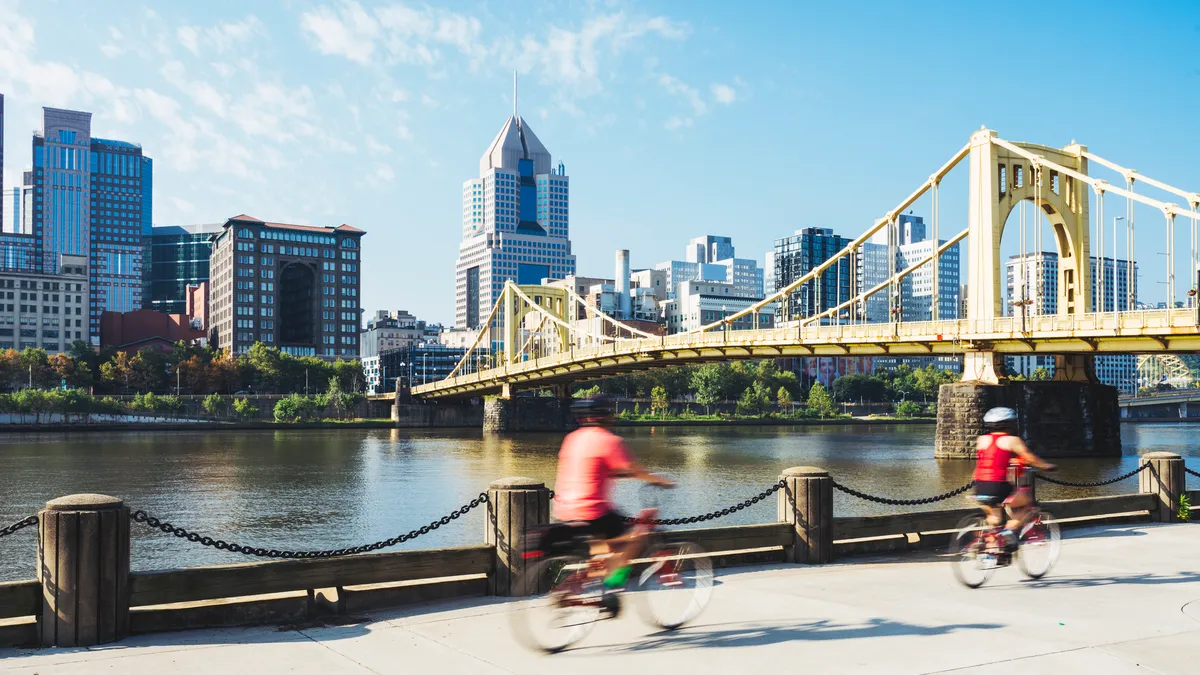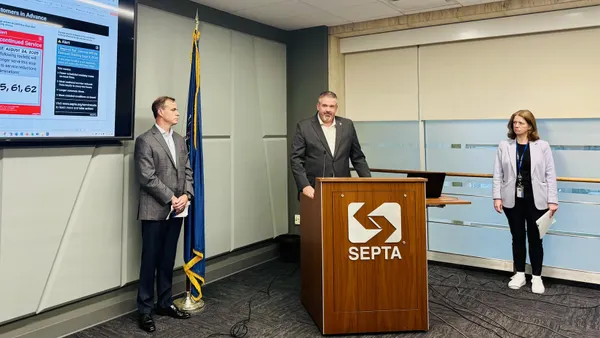Dive Brief:
- Up to 50 low-income residents in Pittsburgh will receive widespread multimodal transportation access to bikes, e-scooters, public transit, and car-sharing services during a yearlong pilot program intended to study the benefits of closing mobility gaps in a neighborhood with limited public transit options, the city announced last week.
- Pittsburgh city officials and researchers from Carnegie Mellon University, in partnership with micromobility provider Spin, will study whether free transportation improves the economic, health and social outcomes of the people who receive universal access to transit through the program.
- At the conclusion of the “Guaranteed Basic Mobility” pilot program, which will launch next month, the city will produce a final report evaluating the program’s success in improving access to jobs, education and services and ultimately elevating economic status, said Tosh Chambers, senior program director with Pittsburgh’s Move PGH pilot.
Dive Insight:
Several cities, including Los Angeles, Oakland, California, and Portland, Oregon, have recently launched universal basic mobility programs that provide low-income residents with money that they can to use on public and last-mile transportation.
In Pittsburgh, city officials aim to address mobility challenges in the Manchester and Chateau neighborhoods, where residents have a lower median income compared with the rest of the city and struggle to access the central business district, officials said in last week’s announcement.
Chambers added that the Manchester neighborhood is not too far from “a lot of employment and opportunity” but just out of reach of “effective transportation infrastructure and resources.” He hopes that the micromobility options offered under the program will be utilized as a first and last-mile connector to the light rail station located just outside of the neighborhood.
The yearlong pilot is funded through a $200,000 grant from the Richard King Mellon Foundation, plus an additional $50,000 from Spin.
In total, 100 residents are expected to participate in the program, 50 of whom are part of a control group that will not receive any transit benefits but will receive money to participate in surveys throughout the pilot, Chambers said. The other 50 will receive transit benefits including free access to public transportation, near unlimited access to Spin scooters and Pittsburgh’s bikeshare system and monthly credits to Zipcar car-sharing services, he said. They will also participate in surveys throughout the course of the pilot.
Chambers described the approach as “giving them everything including the kitchen sink.” That approach, he said, will give city officials and researchers insight into the question: If someone has every type of transportation option available to them, what combination of modes will they rely on?
“By piloting a wide variety of free transit and mobility options, cities and service providers like Spin are looking to support data-driven policy making that will ultimately improve people’s lives,” said Spin CEO Philip Reinckens in a statement.
While there is currently no funding to continue the program after the pilot, Chambers said he hopes it can be expanded following the release of the final report.











